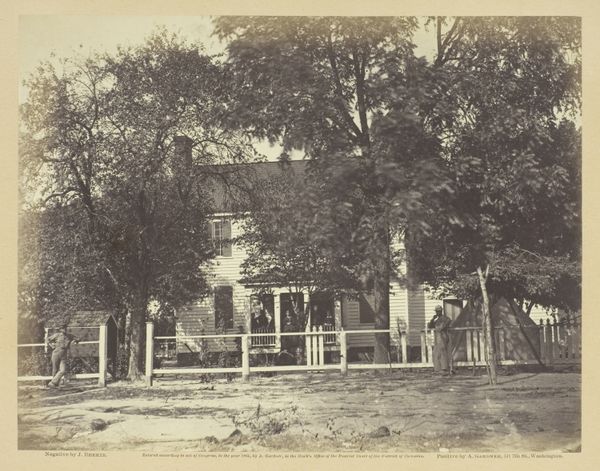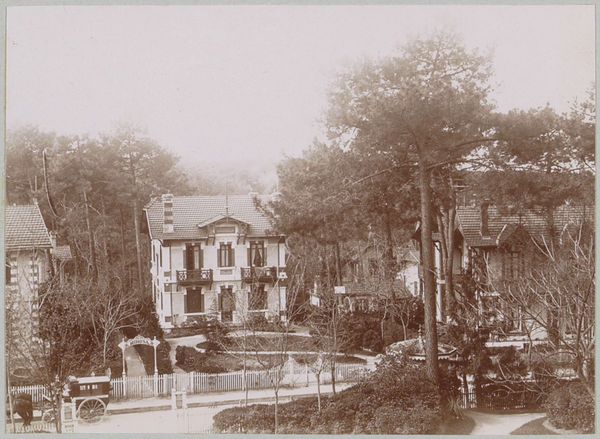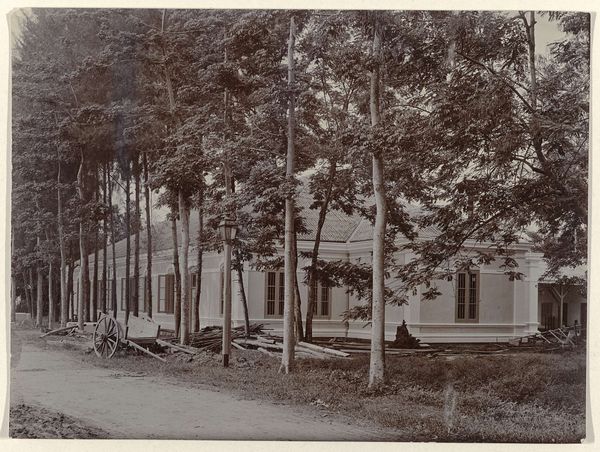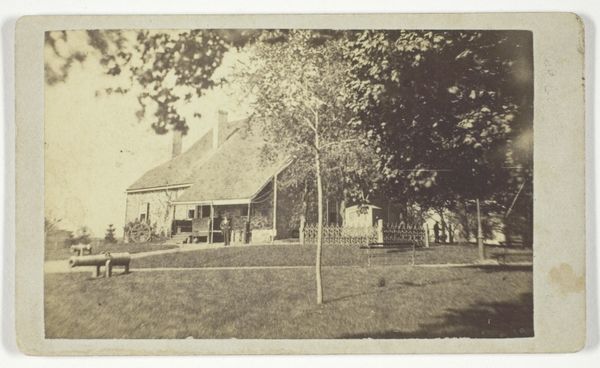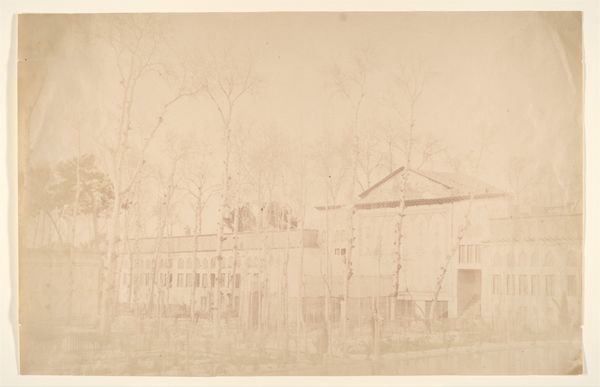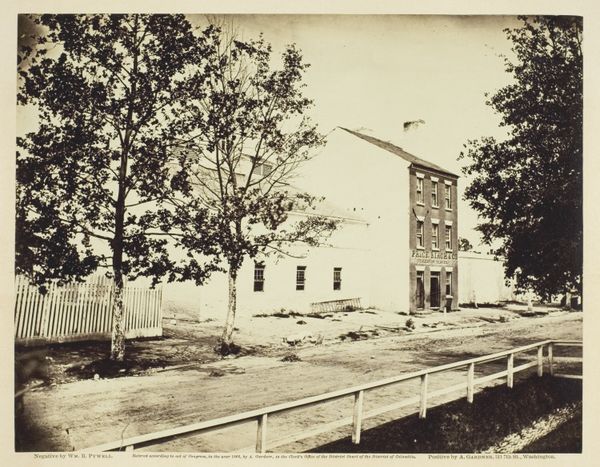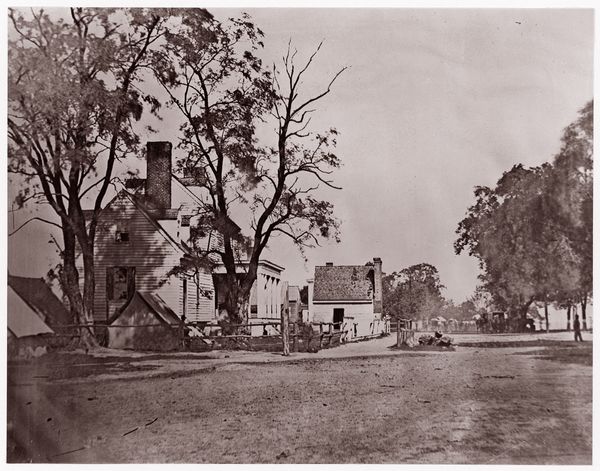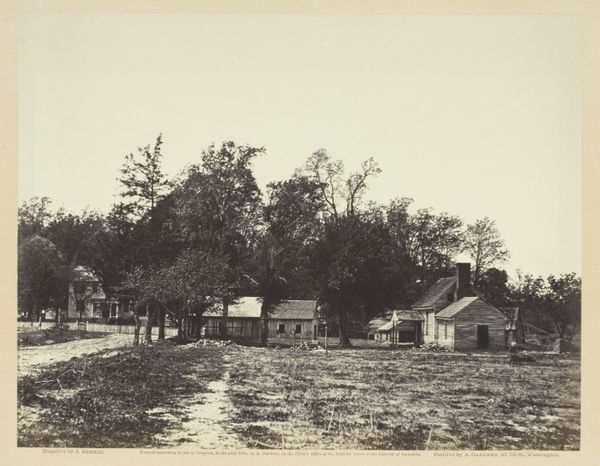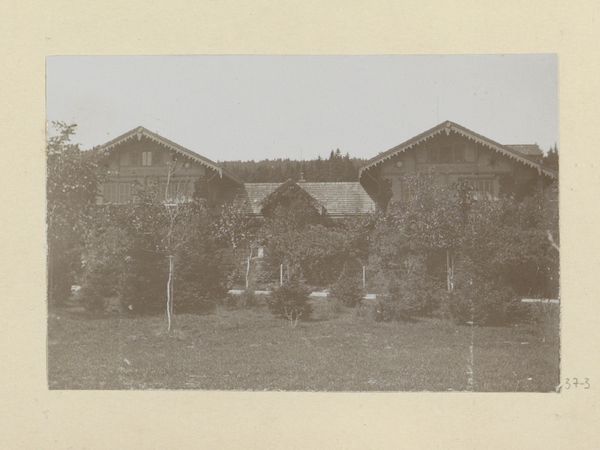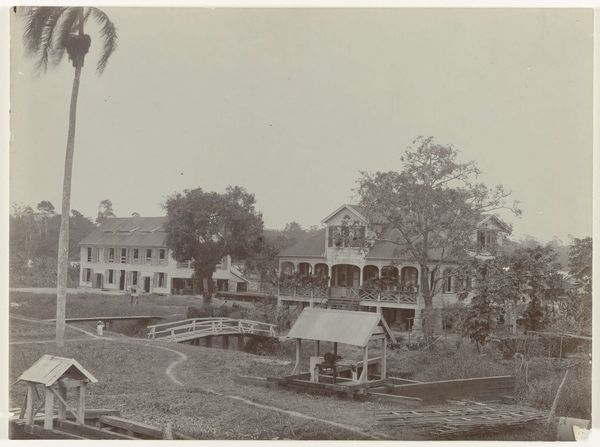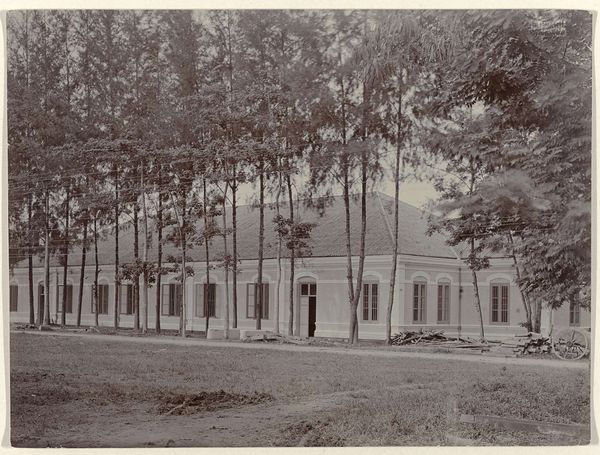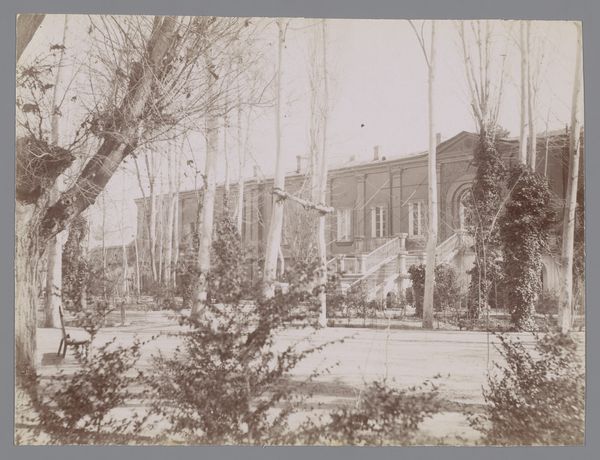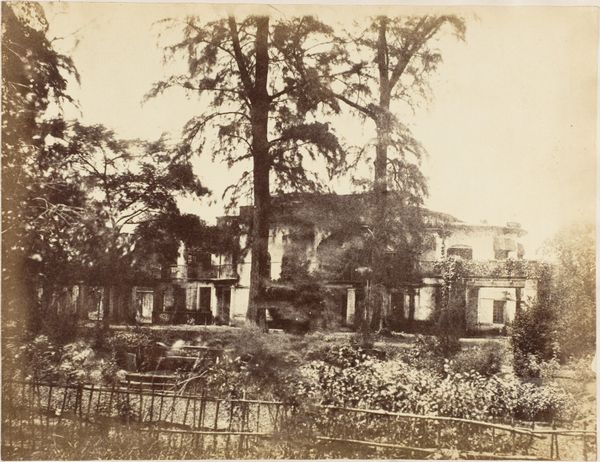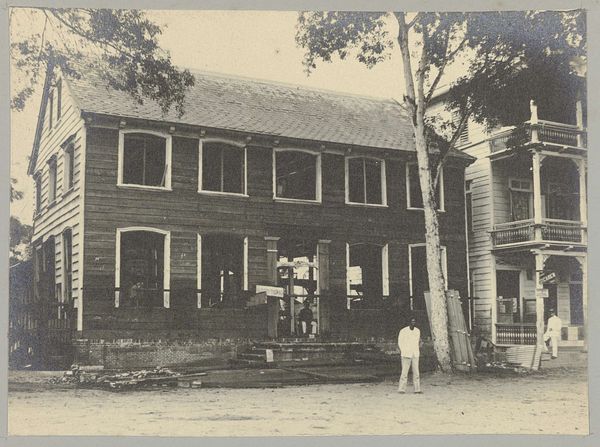
plein-air, photography, architecture
#
scenic
#
architectural sketch
#
architectural landscape
#
pictorialism
#
countryside
#
plein-air
#
landscape
#
photography
#
outdoor scenery
#
greenery
#
architectural drawing
#
architecture drawing
#
architectural proposal
#
cityscape
#
scenic spot
#
architecture
Dimensions: height 115 mm, width 160 mm
Copyright: Rijks Museum: Open Domain
Curator: So peaceful. I could happily lose myself in that image for hours. It evokes a deep sense of nostalgia, doesn't it? Editor: It does have that quality. This is a photograph from 1897 titled, "Gezicht op twee villa's, vermoedelijk in Le Moulleau bij Arcachon." It depicts a couple of villas nestled in what seems like a tranquil countryside setting. It resides here in the Rijksmuseum’s collection. Curator: Yes! It's like a memory of a summer afternoon. The hazy sepia tones give everything a dreamlike quality. Almost like stepping into a memory, not unlike my grandparents’ house, somehow... Editor: What strikes me is the subtle interplay between nature and architecture. We see the villas, signs of human design and aspiration, almost swallowed by the surrounding forest. It prompts questions about humankind's relationship with the environment. Are we imposing, or integrated? Curator: Integrated, I hope! I see these houses as charming little beacons in a wilderness that both embraces and dwarfs them. Imagine sitting on one of those porches with a book! Also, note how the fence almost seems unnecessary—a gentle border, not a stark division. Editor: That fence speaks volumes, actually. Who is being kept in or out? Those barriers were so often implicated in exclusions based on race and class. Even in this apparently idyllic setting, it's critical to remember such divisions. It prompts thoughts on accessibility and privilege that might be invisible in such scenes. Curator: Hmmm, I hear you. But I must admit that looking at it, that’s the last thing I think about! Instead, it gives me the chance to fantasize about a quiet rebellion – trading the modern world's hustle for the calm simplicity of these villas, back when slowing down wasn't just a trendy fad, but just how things were. Editor: Perhaps there’s value in exploring how aesthetic pleasure can coexist with historical awareness. We can appreciate the image’s beauty while staying vigilant about its historical context and potential silences. This image can evoke discussions of leisure and luxury from the late 19th century and also invites considerations of who benefits from these visual paradises. Curator: Ultimately, isn't art about connection? To beauty, to history, to our own memories, hopes, and, yes, even discontents? Even a picture as simple as this one provides all those doorways to explore and, maybe, to change how we look at things. Editor: Yes, it truly highlights how images, seemingly simple, hold multiple layers. It is this kind of ongoing engagement that can make viewing these pieces so illuminating and enriching.
Comments
No comments
Be the first to comment and join the conversation on the ultimate creative platform.
